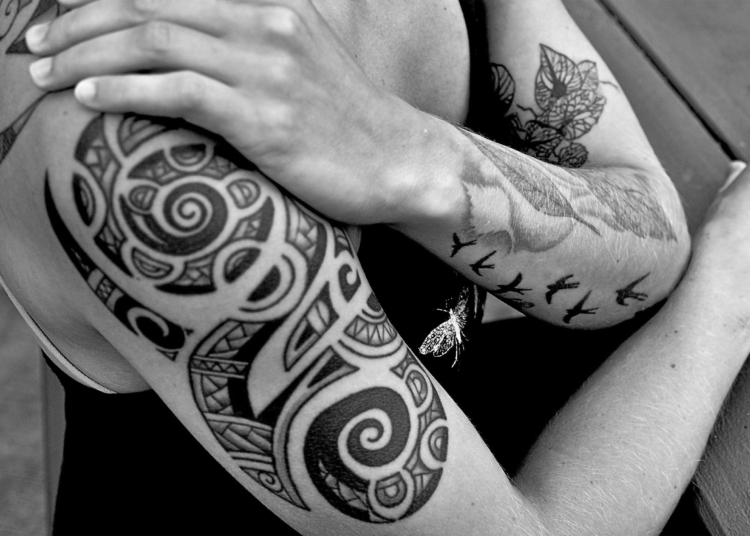This content discusses the significance of military tattoos in different cultures. It explores how tattoos have been a form of self-expression and cultural symbolism for centuries, and how they hold tremendous significance in various cultures around the world. The content discusses the origins of military tattoos, including the Roman army’s use of tattoos to showcase rank and allegiance. It also examines specific cultures, such as Japanese, Native American, and Maori, and their traditions of military tattoos. Additionally, the content highlights the emotional connection that military tattoos hold for those who wear them, serving as reminders of sacrifice, bonds, and experiences during military service. The content concludes by emphasizing that military tattoos are powerful symbols of bravery, loyalty, and sacrifice that tell stories of courage and honor.
Tattoos of Bravery: The Significance of Military Ink in Different Cultures
Introduction
Tattoos have been a form of self-expression and cultural symbolism for centuries. In various cultures around the world, tattoos hold tremendous significance and are often used to mark important milestones, achievements, or as a form of protection. For military personnel, tattoos have an even deeper meaning, representing courage, loyalty, and bravery. In this article, we will explore the significance of military ink in different cultures and the stories behind these powerful tattoos.
The Origins of Military Tattoos
The tradition of military tattoos can be traced back to ancient times. Soldiers in the Roman army, for example, would often get tattoos to showcase their rank, accomplishments, and allegiance to their legion. These tattoos served as both a form of identification and a symbol of strength.
Japanese Military Tattoos
In Japanese culture, there is a rich history of tattoos known as “irezumi.” These traditional tattoos are highly detailed and often cover large areas of the body. In the context of the military, Japanese soldiers would adorn themselves with tattoos to represent their bravery and dedication to their country. Some popular designs include dragons, koi fish, samurais, and cherry blossoms.
Native American Military Tattoos
The indigenous people of North America also have a long-standing tradition of military tattoos. Native American warriors would often get tattoos to honor their acts of bravery in battle. These tattoos served as a visual record of their achievements and were believed to offer protection in future conflicts. Symbols such as feathers, arrowheads, and animals were commonly used in Native American military tattoos.
Maori Military Tattoos
The Maori people of New Zealand have a strong warrior culture, and their tattoos have deep cultural significance. Known as “moko,” these intricate facial tattoos were traditionally used to depict the wearer’s lineage, social status, and personal history. Maori warriors would often get elaborate moko tattoos to symbolize their bravery, skills, and accomplishments on the battlefield.
Modern Military Tattoos
In modern times, military tattoos have become widespread and are not limited to specific cultures. Soldiers from all around the world often get inked to commemorate their time in service, honor fallen comrades, or symbolize the values they hold dear. Designs such as military insignias, eagles, anchors, and dog tags are commonly seen in modern military tattoos.
The Emotional Connection
One of the most significant aspects of military tattoos is the emotional connection they hold for those who wear them. These tattoos serve as a reminder of the sacrifices made, the bonds formed, and the experiences endured during military service. They provide a sense of camaraderie among soldiers and can be a source of comfort and strength in difficult times.
Conclusion
Military tattoos are more than just ink on skin; they are powerful symbols of bravery, loyalty, and sacrifice. Across different cultures, military personnel have used tattoos to not only commemorate their service but also as a form of protection and expression. These tattoos tell stories of courage and honor, serving as a permanent reminder of the indomitable spirit of those who serve their country.













